The Fowler House is the first and only designated landmark site in the United States recognizing Montaukett Indian history and culture.
Follow the Friends Of Fowler House’s Facebook page for more news and events.
To learn more about Montaukett history and culture in East Hampton, including the historical communities of Freetown and Indian Fields, we recommend Dr. Allison Manfra McGovern’s Ph.D. dissertation, “Disrupting the Narrative: Labor and Survivance for the Montauketts of Eastern Long Island“, which offers a rigorous in-depth study of oral traditions, archaeological research and architectural surveys, close analyses of historical records, and long-term ethnographic work with Long Island’s contemporary Montaukett community. Also, take look at “Created Communities: Segregation and the History of Plural Sites on Eastern Long Island, New York“, a recent academic journal article by Dr. McGovern and Dr. Christopher Matthews, which explores the complexities of identity and heritage in communities like Freetown.
UPDATE!
With support from East Hampton’s Town Supervisor and Town Board members, stabilization and reconstruction of the structure are complete! We look forward to continuing to work with the town, the Montauketts, and other stakeholders in developing a preservation plan for the surrounding grounds, as well as plans for interpretation and public access to the Fowler House. Stay tuned for more details!
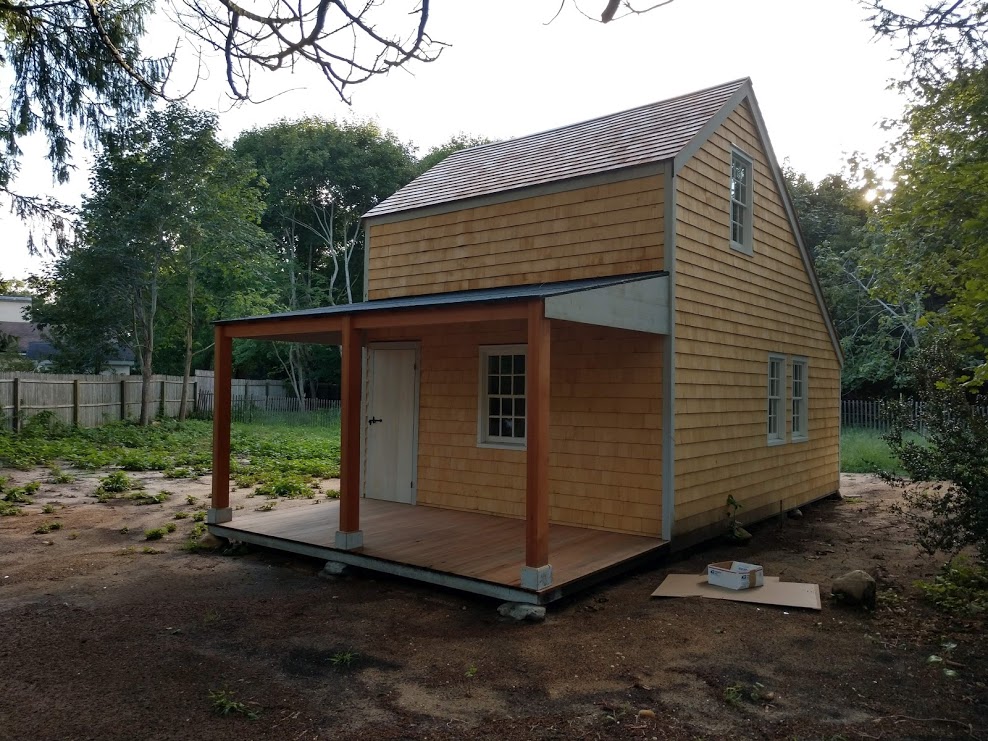
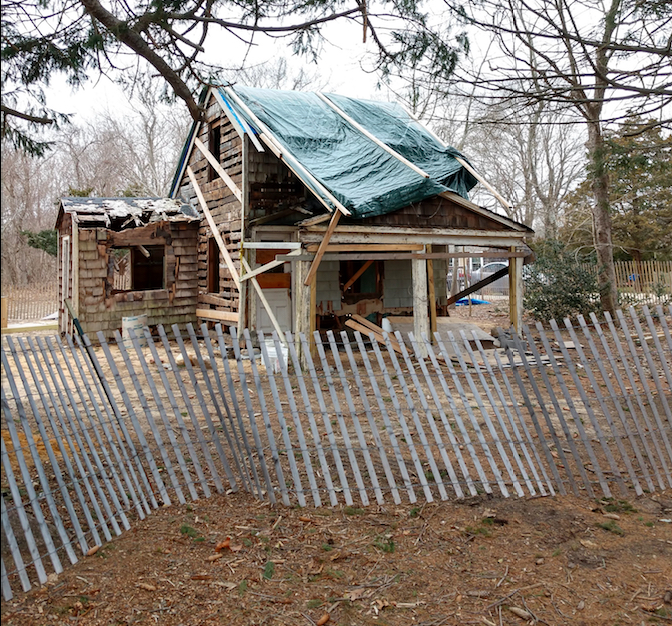
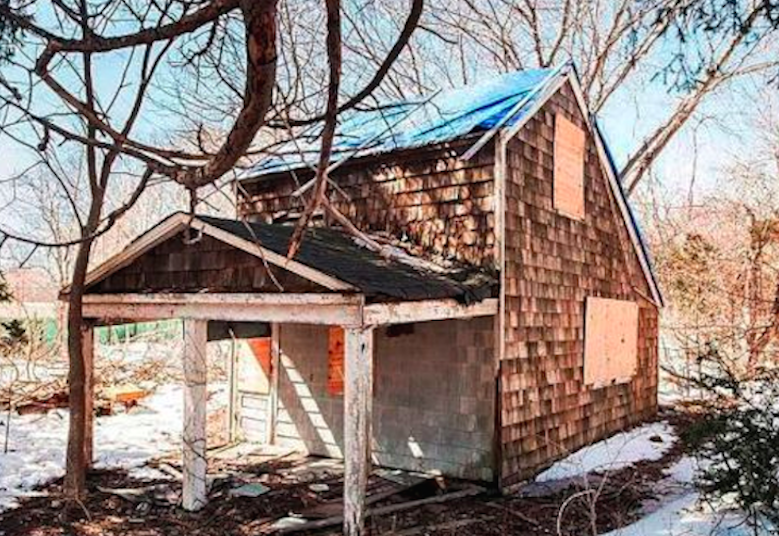
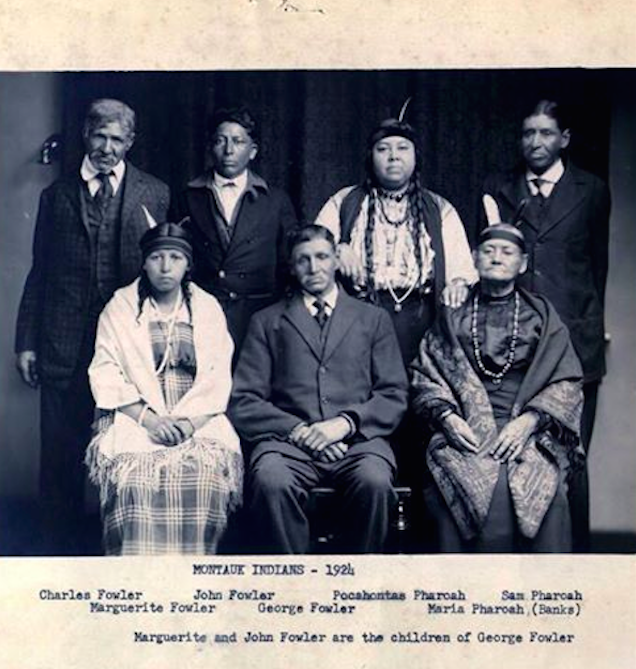
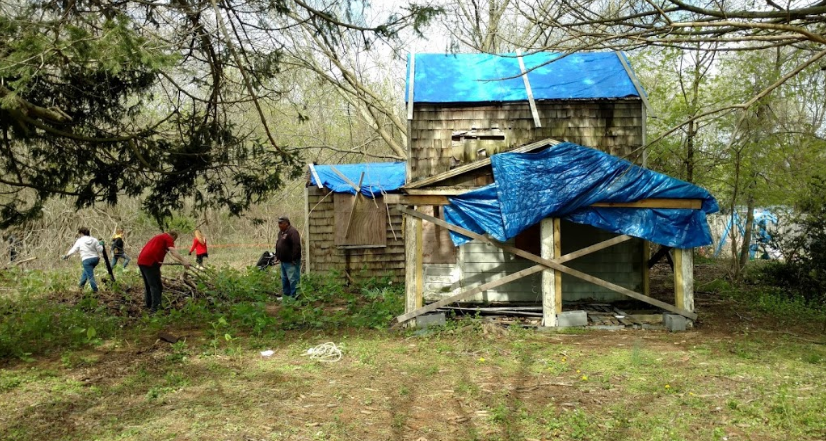
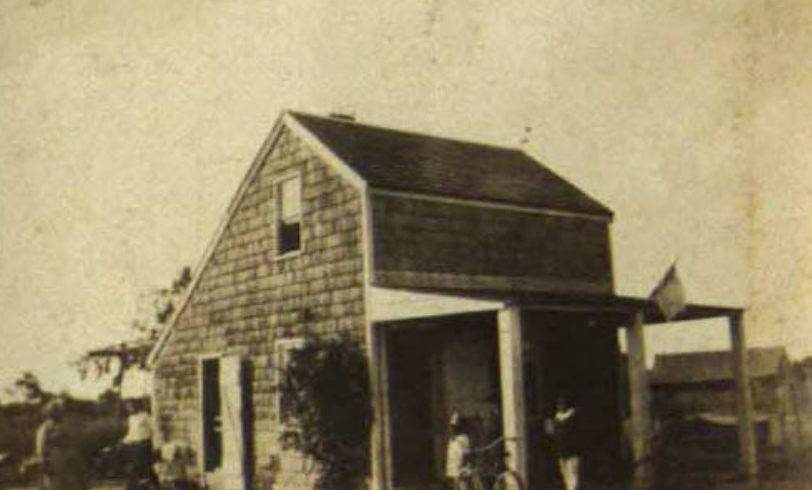
Built mid/late 19th c.
Town of East Hampton, Suffolk County
Featured in our 2016 Preservation Notes, the Fowler House provides an extraordinary glimpse into the lives of Montaukett Indians on Long Island over a century ago. This storied house is a powerful reminder that Native American history is an integral part of American heritage locally, regionally, and nationally. The small vernacular saltbox house was once owned by George Fowler, a Montaukett Indian who was born at Indian Fields in Montauk, and whose family was among the last residents of the Indian Fields settlement at the time of their dispossession from the land in the 1870s. The Fowlers and other Montaukett families were pressured by Arthur W. Benson, a real estate developer who purchased Indian Fields at auction, to relocate to Freetown, north of East Hampton Village. The Fowler House now stands on one of these Freetown plots.
Historical documents and oral histories indicate the process of resettlement involved dismantling Montaukett houses for relocation from Indians Fields to Freetown. For example, an 1885 indenture record states that Benson agreed to transfer a twelve-acre parcel at Freetown to George Fowler and his relatives; Benson also agreed to transport “the materials of the houses belonging to the above mentioned Indians [Fowler and his relatives], now on Montauk, to the above-described lands in Free Town and their re-erection thereon…”, which suggests that the Fowler family’s dwellings at Indian Fields were dismantled, then the building materials were sent to Freetown, where the structures were rebuilt along with the displaced community. While research continues into the origins of the Fowler House and its building materials, the property has important stories to tell about the lives of the Fowlers and the resilience of Montauketts throughout the late 19th and 20th centuries.
In the 1990s, suffering from abandonment and deterioration, Suffolk County took possession of the property for owed taxes. The County transferred ownership at the Town of East Hampton’s request and mutually agreed to: preserve the site as parkland; protect any buried cultural resources on the property; and consult with Fowler descendants and the Montauketts to interpret the site for the public. A committee of local supporters and residents was formed in 2015 to advise the town on preservation plans, but progress has been slow.
After the Town of East Hampton designated the site as a historic landmark in 2016, repairs to preserve the vulnerable structure were completed in the late spring of 2018. Comprehensive plans have yet to be developed for historically sensitive maintenance of the house and grounds, as well as provisions for the long-term preservation of the site, including plans for interpretation and public access.
Preservation Long Island advocates for maintaining the property according to the Secretary of the Interior’s Standards for Preservation until a comprehensive plan is in place to open the house and grounds as a public center for Montaukett culture and history. By bringing attention to underrepresented sites of Montaukett culture on Long Island, we also advocate for greater recognition of places with significant ties to Long Island’s past and present American Indian communities.
ACTION ALERT!
Preservation of the Fowler House would greatly benefit from the resources and recognition made possible by restoration the Monatukett Indian Nation’s tribal status. Over 100 years ago, a New York State judge decided that the Montaukett Indian Nation was extinct, despite the presence of a number of Montauketts in the courtroom when the ruling was made.
Bills to grant official New York State recognition to the Montauketts were introduced in 2013, 2017, and 2018 by State Assemblyman Fred Thiele (I-Sag Harbor) and State Senator Ken LaValle (R-Port Jefferson). Although all three bills passed both chambers of the NYS Legislature, they were all vetoed by Governor Andrew Cuomo.
Nevertheless, the campaign to restore tribal recognition for Long Island’s Montaukett Indian Nation continues! You can help by contacting Governor Andrew Cuomo to let him know you support restoring the Montaukett’s tribal status.
Send a message to the Governor online here.
Or call: (518) 474-8390
Or send by mail to:
The Honorable Andrew M. Cuomo
Governor of New York State
NYS State Capitol Building
Albany, NY 12224



